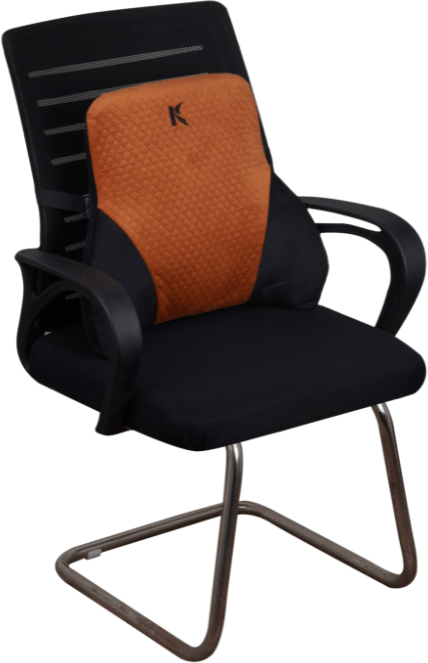Blog
Do Lumbar Support Pillows Work

In our increasingly sedentary world, back pain has become a common complaint for many people. Among the various solutions proposed to alleviate this issue, lumbar support pillows have gained significant popularity. But do these pillows work? Let’s delve into the science, benefits, and potential drawbacks of lumbar support pillows to help you make an informed decision.

Understanding Lumbar Support
Before we assess the effectiveness of lumbar support pillows, it’s crucial to understand what lumbar support means:
- The lumbar region refers to the lower part of your back, consisting of five vertebrae (L1-L5).
- This area naturally has an inward curve (lordosis) that helps distribute body weight and facilitate movement.
- Proper lumbar support maintains this natural curve, especially when sitting for extended periods.
The Theory Behind Lumbar Support Pillows
Lumbar support pillows are designed based on the following principles:
- Maintaining Natural Spine Curvature: They aim to fill the gap between the lower back and the seat, supporting the spine’s natural curve.
- Reducing Pressure: By distributing weight more evenly, they potentially reduce pressure on the spine and surrounding muscles.
- Improving Posture: They encourage users to sit with better posture, potentially reducing strain on the back muscles.
Scientific Evidence
While anecdotal evidence often supports the use of lumbar pillows, let’s look at what scientific research says:
- A study published in the journal “Pain Research and Management” (2019) found that lumbar support pillows can significantly reduce lower back pain and improve sitting comfort in office workers.
- Research in “Ergonomics” (2016) suggested that lumbar supports can reduce lumbar flattening and posterior pelvic tilt, potentially reducing the risk of lower back pain.
- However, a systematic review in “Spine” (2015) concluded that while lumbar supports may provide short-term pain relief, there’s limited evidence for long-term benefits or prevention of back pain.
Potential Benefits of Lumbar Support Pillows
- Pain Relief: Many users report reduced lower back pain when using these pillows.
- Improved Posture: They can serve as a reminder to maintain good posture while sitting.
- Increased Comfort: For some, these pillows make sitting for long periods more comfortable.
- Portability: Most lumbar support pillows are easy to carry and can be used in various settings (office, car, home).
Possible Drawbacks
- One Size Doesn’t Fit All: The effectiveness can vary greatly depending on individual body types and specific back issues.
- Dependency: Some users may become reliant on the pillow, potentially weakening core muscles over time.
- Incorrect Usage: If not positioned correctly, these pillows could potentially cause more harm than good.
- Quality Matters: Low-quality pillows may not provide adequate support or may wear out quickly.
Who Might Benefit from Lumbar Support Pillows?
Lumbar support pillows may be particularly beneficial for:
- Office workers who sit for long hours
- People with mild to moderate lower back pain
- Individuals recovering from certain back injuries (under medical advice)
- Drivers who spend extended periods in their vehicles
Tips for Using Lumbar Support Pillows Effectively
- Proper Positioning: The pillow should be placed in the curve of your lower back, not at waist level.
- Combine with Good Posture: Use the pillow as part of an overall ergonomic setup, including proper chair height and desk arrangement.
- Take Breaks: Even with support, it’s important to stand up and move regularly.
- Consult a Professional: If you have chronic back pain, consult a healthcare provider before using any support devices.
Conclusion
While lumbar support pillows aren’t a magic solution for all back problems, evidence suggests they can be beneficial for many people, especially in providing short-term relief and comfort. Their effectiveness largely depends on proper use, individual needs, and the quality of the pillow itself.
Remember, lumbar support pillows should be part of a comprehensive approach to back health, including regular exercise, maintaining a healthy weight, and practicing good posture. If you’re considering using a lumbar support pillow, it may be worth trying one to see if it works for you, but always consult with a healthcare professional if you have persistent back pain or concerns.
